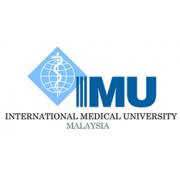
Chinese Medicine (CM) has its origin more than 2500 years ago, greatly influenced by the teachings and written works of great herbalists, acupuncturists, philosophers and physicians. They emphasised man’s relationship to the environment, considering the human body to be a mini universe governed by opposing forces (yin-yang) which kept the body working in balance and harmony. In health, the opposing life forces of yin and yang were in balance while in illness there was an imbalance. CM studies the person in health and disease from the aspects of prevention, diagnosis, treatment and rehabilitation in a holistic manner. The range of treatments in CM include herbal therapy, acupuncture, moxibustion, cupping, tuina, bone and spine manipulations, dietary therapy, exercise therapy like qigong and taijiguan.
Currently, there is a worldwide trend to integrate certain Chinese medicine practices like acupuncture and herbal remedies to complement the management of pain and reduce side effects of drugs used to treat chronic diseases. Today many universities in Australia, Canada, the United States of America, Europe, including France in addition to China, Hong Kong, Taiwan, Malaysia and Singapore have degree and postgraduate degree courses in Chinese medicine.
The Ministry of Health (MOH), Malaysia recognises that a large proportion of its multiethnic population consults CM practitioners and use other traditional and complementary medicine (T&CM) practices with importation of herbal products being 3 to 4 times the value of allopathic products. The Complementary Medicine Unit in the MOH coordinates and implements policies related to training and registration of practitioners with the aim to integrate T&CM into the national healthcare delivery system. It introduced standards for courses at diploma and degree levels to be enforced by the Malaysian Quality Agency (MQA). The Traditional and Complementary Medicine Act once passed by Parliament will regulate the T & CM practices.
4 – 5 years
| EXAMINATIONS | REQUIREMENTS |
| A-Levels | EE in 2 science subjects |
| STPM | CGPA 2.50 |
| Australian Matriculation | 65% aggregate or TER / UAI 75 |
| NCEA Level 3 | 60% |
| Canadian Grade 12/13 | 60% in 6 subjects |
| Unified Examination Certificate (UEC) | B6 in 5 subjects |
| Australian University Foundation Programmes | 70% aggregate in 4 best subjects or TER / UAI / ENTER / ATAR 75 or GPA 2.00 |
| Indian Pre-University | 60% |
| Ministry of Education Matriculation | CGPA 2.00 |
| International Baccalaureate (IB) | 24 points |
| American High School Diploma with Advanced Placement (AP) | Not applicable |
| Foundation | CGPA 2.00 or 50% (Foundation in Science) |
| Degree | Pass |
| Diploma in Science, Diploma in Microbiology |
Diploma in Science, Diploma in Microbiology, Diploma in Traditional and Complimentary Medicines – CGPA 2.50 Diploma in Traditional and Complimentary Medicine with 2 years working experience in the related field – CGPA 2.00 |
Please refer to the University for any variation on entry requirement.
The IMU reserves the right to change these admission requirements from time to time.
Applicants are required to have one of these at the point of entry:
| MUET | Band score of 3 (for Malaysian students only) |
| IELTS | Overall band score of 5.5. Those who opt for overseas option must achieve an overall band score of 7.0 |
For credit transfer to RMIT Universities:
Applicants are required to have this at the point of entry:
| IELTS | Overall band score of 6.0 |
For credit transfer to China Universities:
Applicants are required to have this at the point of entry:
| China’s Hanyu Shuiping Kaoshi (HSK) | HSK 4 prior to transfer and HSK 5 prior to graduation |
Please note that UEC students with pass in Chinese Language are exempted from HSK.
All registered students are required to take the IMU Diagnostic Language Test during the first semester.
All qualifications should include any two science subjects (Biology, Chemistry, Physics, Mathematics) at STPM/A-Levels/equivalent qualifications.
Students without IELTS or MUET can opt to sit for the Password English Test which is available only in IMU and must obtain the equivalent score required for IELTS. Students who have successfully enrolled using the Password English Test are still required to sit for MUET and (or) IELTS exam within the first year of their studies in IMU. This is ONLY applicable to those who are completing the entire degree in IMU, Malaysia. Please contact Admissions Office for further details or to register for the test.
Please contact Admission Office for further information on qualifications from Thailand, Indonesia, Vietnam, Bangladesh, South Korea, China, Tanzania,
Kenya, Uganda and Iran.
Note:
1. Please note that achieving the minimum entry and English requirements as stated does not guarantee you admission into any of IMU’s programmes
2. The entry requirements and English requirements are subject to change. Please refer to our website for the latest information.
Source :International Medical University